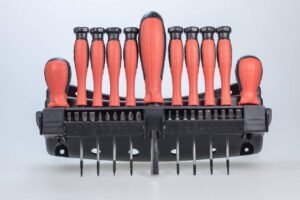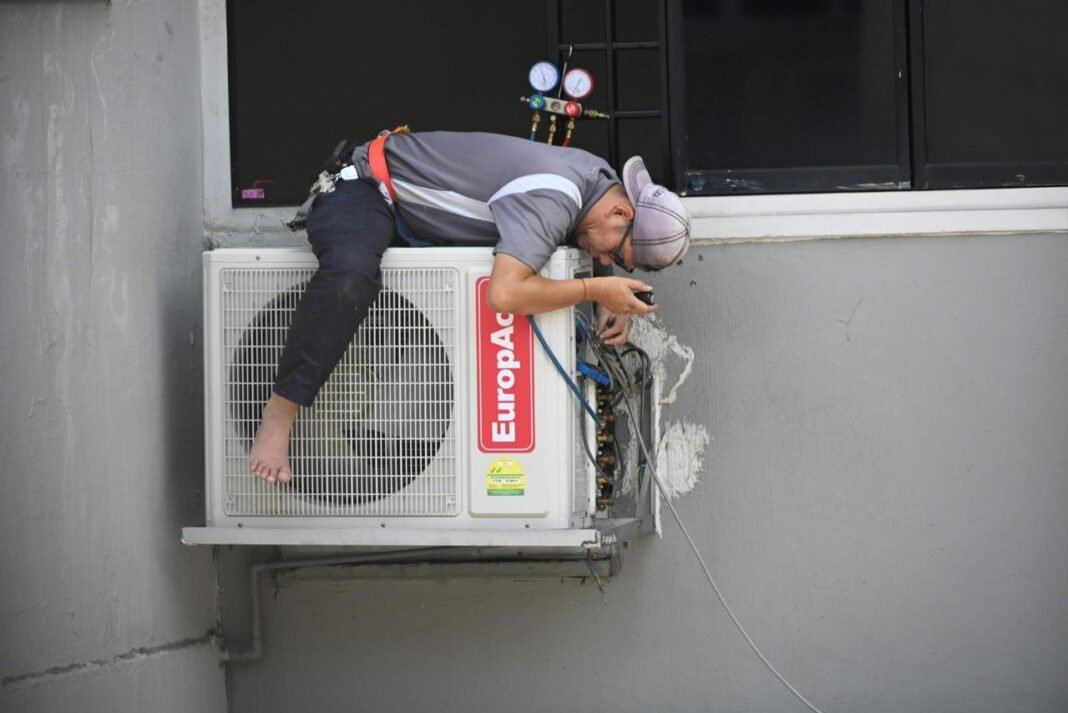Nothing disrupts your day quite like a malfunctioning appliance. Whether it’s a broken refrigerator, a temperamental washing machine, or a faulty HVAC unit, these modern marvels of convenience can quickly turn into sources of frustration. While a professional technician is always an option, minor issues can often be resolved by a determined homeowner. But fear not! With a little guidance and a can-do attitude, tackling simple appliance repairs at home can be within your reach. Prepare to save time and money by learning a few basic repair skills that could handle many household mishaps.

Understanding Your Home Appliances
Before diving into repairs, it’s important to have a basic understanding of your appliances and how they function. For instance, appliances like refrigerators and ovens rely on electrical components, while others like HVAC systems may involve both electrical and mechanical parts. Equipping yourself with this knowledge can help you diagnose issues more accurately and perform repairs safely.
Knowing Your Appliance’s Anatomy
Taking a closer look at your appliances can demystify their operation. For example, a refrigerator typically has a compressor, condenser coils, and an evaporator to help keep your food cool. Familiarizing yourself with these components will make troubleshooting simpler.
Common Issues and Essential Tools
When it comes to appliance repairs, being prepared can save you time and effort. Start by identifying common issues that might arise with each appliance. For instance, refrigerators might experience cooling problems due to a malfunctioning thermostat, whereas washing machines could have draining issues linked to clogged hoses. Once you have a sense of potential problems, assemble a basic toolkit that includes screwdrivers, a multimeter, wrenches, and pliers. Having these tools on hand will make it easier to handle unexpected repairs and ensure you’re ready for any small fixes that might come your way.
Refrigerator Woes
Refrigerators keep our food fresh, but a broken one can spoil the party. If your fridge isn’t cooling, check the power supply and make sure the door seals are clean and intact. Regular maintenance, such as cleaning the coils and checking the temperature settings, can prevent many common refrigerator issues. Keep an eye on frost buildup in the freezer, as it can indicate underlying problems with the defrost system.
For more comprehensive assistance, consider reaching out to professionals like Andy’s Appliance Repair for prompt and reliable service. They can handle complex repairs safely and efficiently, allowing you to get back to enjoying the convenience of a fully functioning fridge. Remember, addressing small issues early can prevent bigger problems down the road, saving you both time and money.
Stove and Oven Troubles
Burner not heating up? If it’s an electric stove, ensure the burner is securely connected. For gas units, make sure the pilot light is lit and look for blockages in the burner holes. Regular cleaning can prevent grime buildup, which may impact performance. Additionally, checking the power cord or gas line connections could resolve intermittent power or gas supply issues. For persistent problems that go beyond basic adjustments, consulting the manufacturer’s manual can offer troubleshooting tips specific to your model or consider professional help to ensure safety and proper repair.
Dishwasher Dilemmas
Dishwashers make life more convenient, but they can also develop issues over time. If your dishwasher is leaving dishes dirty, start by inspecting the spray arms for clogs or grime buildup. Regularly cleaning these parts can enhance performance. Additionally, ensure that the filter is clean and the drain is free from debris to prevent water from backing up. For units not starting, verify that the door latch is properly engaged and check the power supply. If the problem persists, consulting a professional might be necessary to avoid further complications. Regular maintenance and cleaning can keep your dishwasher running efficiently and extend its lifespan, providing you with spotless dishes every time.
The HVAC Hustle
Your home’s heating, ventilation, and air conditioning (HVAC) system is essential, especially during extreme weather. Regular maintenance of your hvac equipment can prevent unexpected breakdowns and ensure efficient operation. When your air conditioner stops blowing cold air, it might just need a new filter or a reset. If issues persist, examining your hvac for any loose connections or obstructed vents might be beneficial.
Easy Maintenance Tips
Routine maintenance is key to a healthy HVAC system. Regularly checking and replacing air filters can enhance performance and improve air quality, saving you from costly repairs. Additionally, scheduling annual professional inspections can catch potential issues early, ensuring your system runs smoothly throughout the year.
Signs It’s Time for Professional Help
While regular maintenance can solve many HVAC issues, some problems require a professional’s expertise. If you notice unusual noises, such as banging or grinding, it may indicate a mechanical problem that needs attention. Unexpected spikes in your energy bills might also suggest that your system is not running efficiently. When simple troubleshooting steps don’t resolve the issue, or if you encounter refrigerant leaks, it’s time to call in an expert. An experienced technician can diagnose and fix complex problems, ensuring your HVAC system operates safely and efficiently. By addressing issues early, you can avoid more significant repairs and maintain a comfortable home environment.
The Boiling Point: Boiler Basics
Boilers are crucial for home heating, and when they break down, it can lead to chilly discomfort. Often, a simple reset or bleeding of radiators can resolve the issue. For a new boiler installation, you can also attempt the installation yourself if you have the necessary skills and tools. However, it is essential to ensure you follow all safety guidelines and instructions meticulously, as mishandling can lead to significant safety risks. If you’re unsure, seeking help from a professional can be a safer approach.
Keeping Your Cool: Preventative Maintenance
The best way to prevent appliance breakdowns is through regular maintenance. Develop a maintenance schedule that includes cleaning coils, checking seals, and testing motor efficiency. This proactive approach can extend the life of your appliances and ensure they are running efficiently.
Taking a little time to regularly inspect and care for your appliances can save you money on repairs in the long run. By catching minor issues early, you can avoid more costly damage and maintain the smooth operation of your home.
Essential Preventative Tips
To implement effective preventative maintenance, start by familiarizing yourself with each appliance’s manual, as it provides specific cleaning and maintenance tips. Regularly clean any visible and accessible components, such as filters and coils, to prevent dust and debris buildup, which can impede performance. Make it a habit to check for frayed power cords or any unusual noises that could indicate wear or potential failures. By setting aside time monthly or seasonally to carry out these checks, you can quickly spot small problems before they escalate, ultimately preserving the longevity and reliability of your appliances. Furthermore, consider creating a checklist to track which tasks need completion and when, ensuring nothing is overlooked. A proactive maintenance routine not only saves money but also enhances the safety and efficiency of your home.

Conclusion
Repairing home appliances doesn’t have to be daunting. By understanding your appliances, learning basic troubleshooting, and performing regular maintenance, you can tackle many common issues. Remember, when in doubt, don’t hesitate to seek professional help – it’s a wise investment in the long-term health of your appliances. Moreover, staying proactive about small repairs can prevent more significant and costly damage. Embracing a hands-on approach not only extends the life of your appliances but also empowers you with valuable skills for efficient home maintenance.

